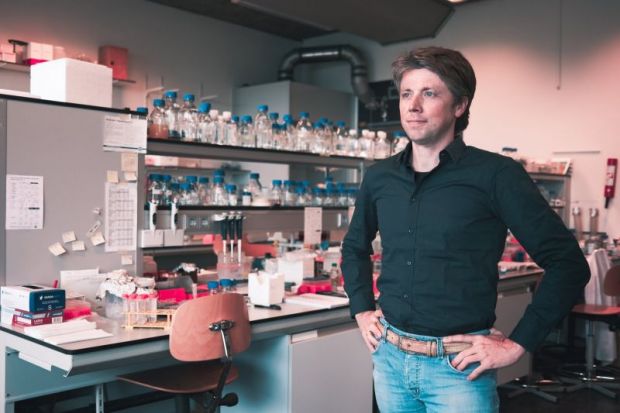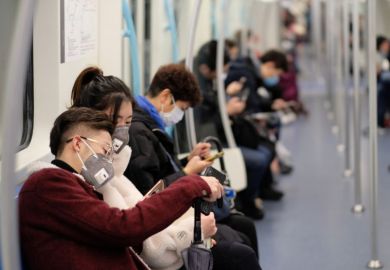Storing the results of a research project in case they may later turn out to be useful would seem like sensible practice to most scientists around the world.
But most researchers would not expect to discover that their previous work suddenly had the potential to tackle the worst pandemic the world has seen in 100 years.
This is exactly what has happened to a team of researchers based in the Netherlands, who discovered that an antibody sitting in their laboratory freezer can block the Sars-CoV-2 coronavirus, which causes Covid-19.
Berend-Jan Bosch, associate professor of virology at Utrecht University, described how he and fellow researchers had been working two years ago on identifying antibodies that had the potential to tackle other coronaviruses, such as the one that caused Sars.
Despite finding dozens of such antibodies, interest in Sars was “waning” so they decided to store them in the freezer.
Then, when the Covid-19 crisis began to take hold in January, Dr Bosch said he “realised that we might have valuable antibodies in the freezer” that could tackle the new coronavirus.
They “rapidly tested” the antibodies and “were excited to see that four of them actually showed good reactivity against the new coronavirus”. Further work then established that one antibody could actually block Sars-CoV-2 – as well as Sars-Cov, the coronavirus that causes Sars − from infecting cells in a lab environment.
The research, carried out in partnership with other institutions including Erasmus University Medical Centre, was published this month and may have the potential to lead to anti-viral treatments to tackle Covid-19.
Dr Bosch, speaking during an online press conference to discuss the discovery, is now involved in negotiations with the pharmaceutical industry about how such treatments could be developed. He said testing on patients could be possible in six months under the most optimistic scenario.
“Our antibody is the first step, and an encouraging step, in the development of such an anti-viral agent. I have to stress that many steps have to be taken,” he said.
The Dutch researcher, one of the world’s most cited coronavirologists according to a Times Higher Education data analysis, said that although the workload of the past few months had been “overwhelming”, it had been “very satisfying to be a little bit of help to mitigate this crisis”.
He said he had also been “really encouraged” by the huge number of researchers around the world who were becoming involved in work to tackle the coronavirus.
“Before this crisis, there were not too many coronavirologists…but now more and more virologists, but also people from other disciplines, are stepping in and want to tackle this virus. So that is a really good thing.”
Asked if there was a danger of duplication of effort with so many scientists now involved in different collaborations in the race for treatments and a vaccine, he said he did not see this as a concern.
“There are independent groups working next to each other. They may do similar work at the same time, but I don’t see that as a real problem because you get different insights. You will always add to the knowledge that we collectively create and generate to tackle this virus.”
Dr Bosch also urged governments to continue to draw on expertise from across disciplines as they search for answers to the crisis: “I think governments [have engaged] scientists from different disciplines: the epidemiologists, the molecular biologists, virologists, medical [experts]…and I think that is the way it should be, because we have to recruit all knowledge on different aspects of this whole pandemic.”





